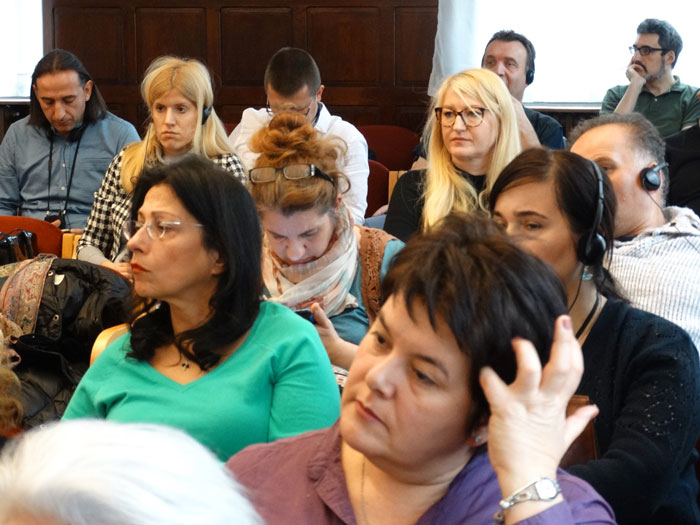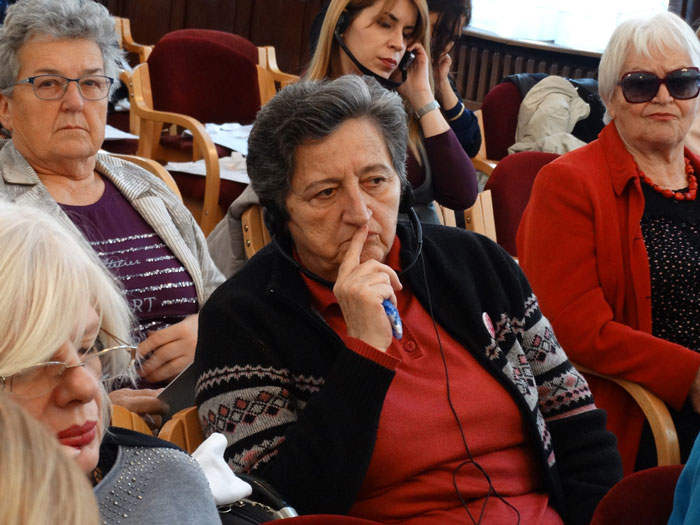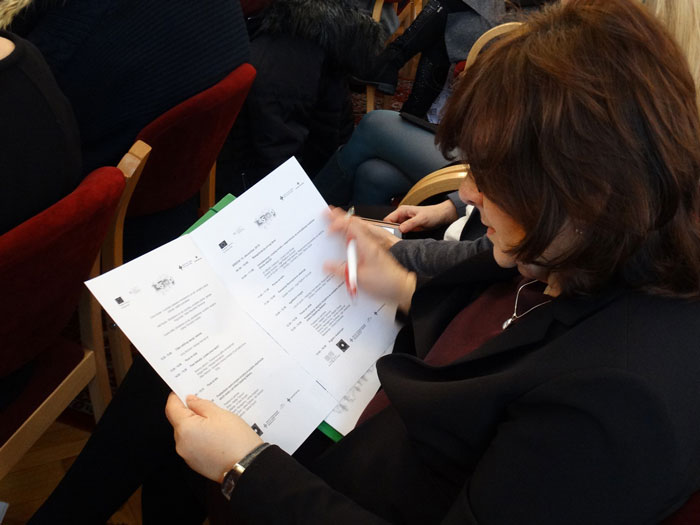- news
- international conference “taking action on social inclusion of older people in the western balkans”
International Conference “Taking Action on Social Inclusion of Older People in the Western Balkans”
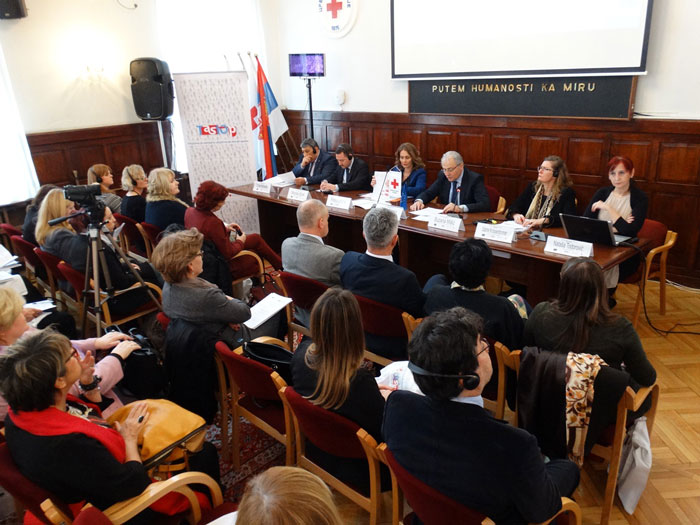
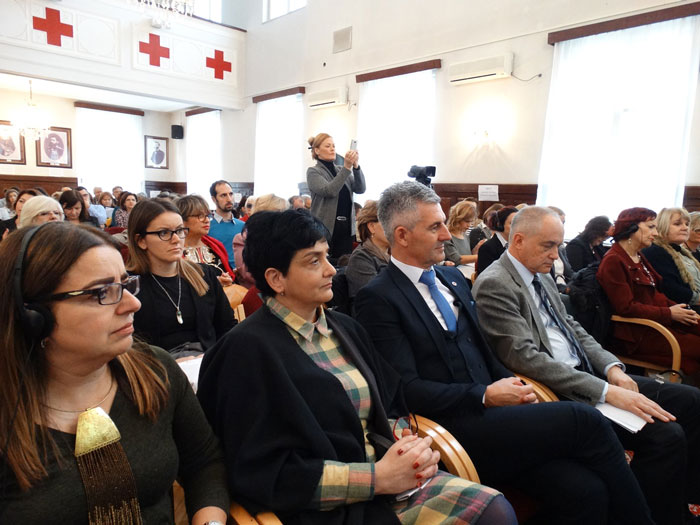
In the Red Cross of Serbia, on 11 and 12 December 2018, as part of the “Taking Action on Social Inclusion of Older People” project (TASIOP), an international conference was organised. The conference, entitled “Taking Action on Social Inclusion of Older People in the Western Balkans” is the last joint activity in the three-year project with the objective being reviewing the achievements of the project, exchanging experience through lessons learned, creating plans for future activities, as well as gaining new knowledge. In addition to the TASIOP project partners from Serbia, Albania, Bosnia and Herzegovina, Macedonia and Montenegro, and the representatives of Austrian Red Cross and Slovene Philanthropy the conference was also attended by the representatives of Austrian Federal Ministry of Labour, Social Affairs, Health and Consumer Protection, Slovenian Ministry of Labour, Family, Social Affairs and Equal Opportunities, HelpAge International from London and Jordan, International federation of Red Cross and Red Crescent Societies, the representative of Serbian Ministry of Labour, Employment, Veteran and Social Affairs and the Serbian Commissioner for Protection of Equality. The conference had approximately 105 participants including representatives of the office of Provincial Ombudsman, Ministry of Education, Science and Technological Development, Centres for Social Welfare, Gerontological Centre Belgrade and other institutions and organisations that work in ageing, as well as older people themselves. The conference was organised by the Red Cross of Serbia, the organisation that coordinated TASIOP project since 1 February 2016 in five countries of the Western Balkans.
At the conference opening, prof. dr Dragan Radovanovic, President of the Red Cross of Serbia, spoke about many years of the Red Cross of Serbia activities from local, through national, regional, to global level, focused on advocating improved quality of life of older women and men as well as promoting a better image of ageing and older people and motivating older people to become active and act as equal participants of the society that respects right based principles. This project strengthened civil society organisations in the Western Balkans and helped their advocacy activities become visible.
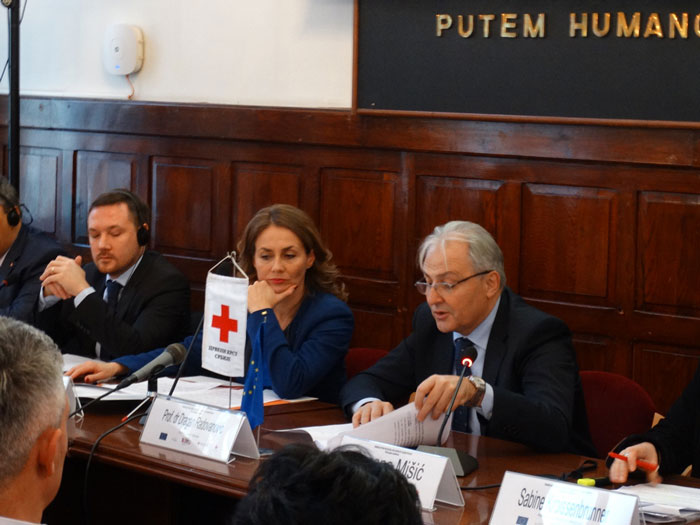
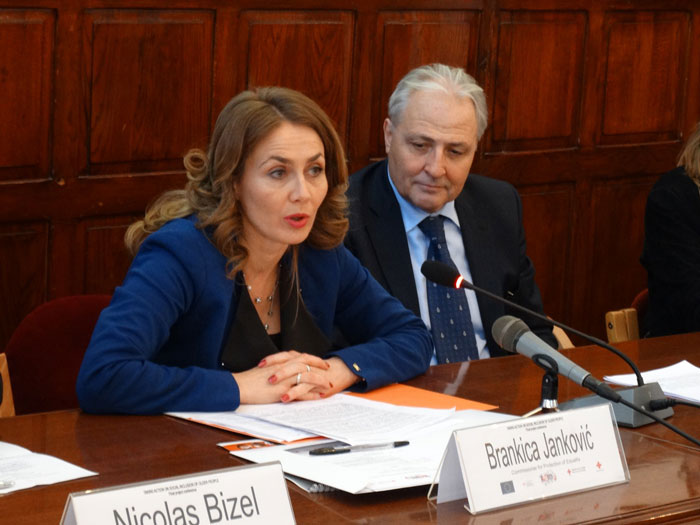
Ms. Brankica Jankovic, Commissioner for Protection of Equality spoke about many years of cooperation between the Commissioner’s Office and the Red Cross of Serbia related to protecting older people from discrimination as well as the importance of work on research and data collection necessary for effective, evidence based advocacy. She underlined the importance of partnership with the Red Cross of Serbia and HumanaS Network that contribute to improvement of the quality of life of older people.
Nicolas Bizel, Head of the Operations I of the Delegation of European Union in Belgrade underlined the importance of projects like TASIOP because they strengthen the civil society networks on one hand, but on the other increase social inclusion of different groups in the society, which contributes to increased social cohesion and finding the just solutions. Sabine Kroisenbrunner, Deputy Head of Mission of the Austrian Embassy in Belgrade also considers regional cooperation and exchange important for advocacy for better social policy that will include older people. She also underlined the continuing interest to project such as this one in the region.
Dr Davron Mukhamediev, Regional Health Coordinator of the International Federation of Red Cross and Red Crescent Societies underlined the significant role of the Red Cross of Serbia in advocacy for improved quality of life of older people as well as great work in data collection and research that is very helpful to the international Red Cross Red Crescent Movement in working with this population.
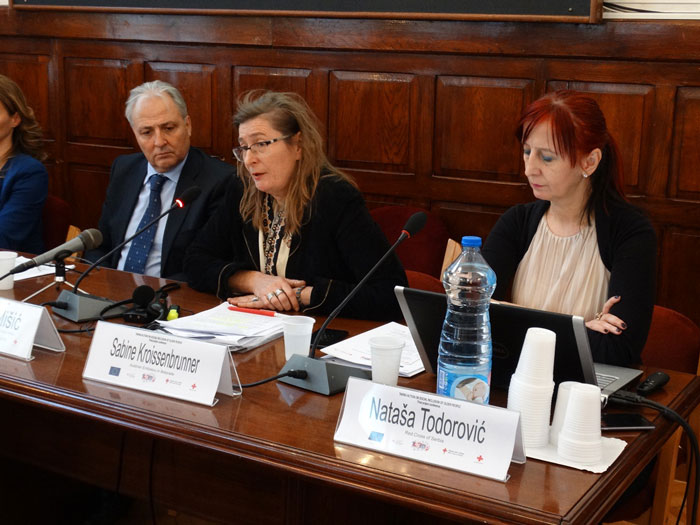
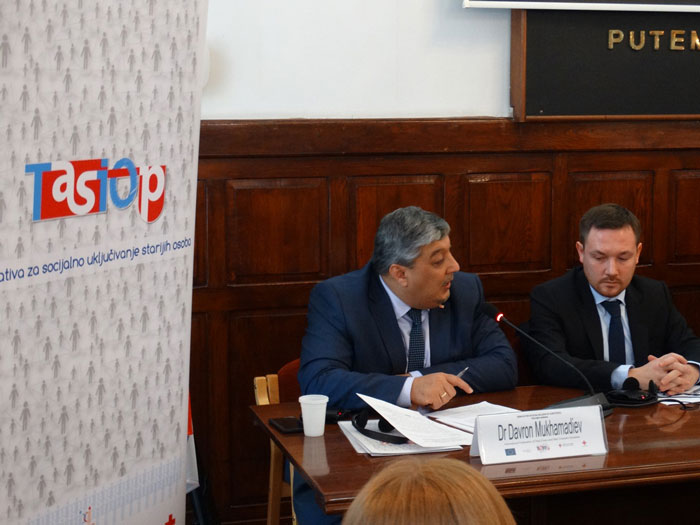
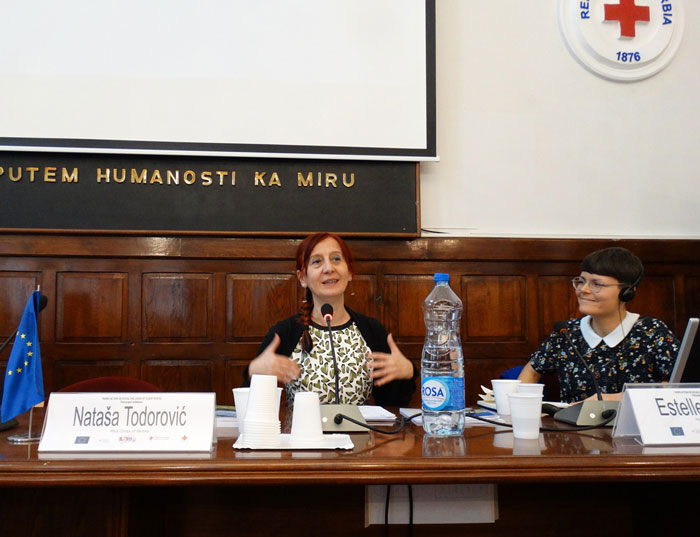
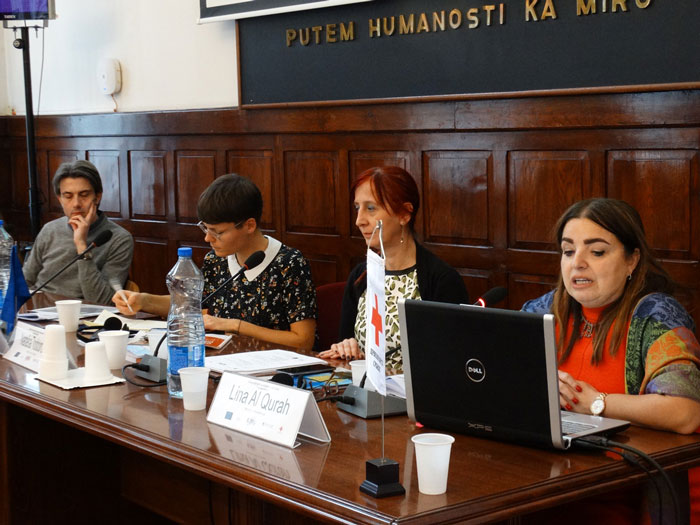
Natasa Todorovic, the Red Cross of Serbia expert presented the main achievements of the TASIOP project. In the first place, in the countries with previously existing civil society networks – Serbia (HumanaS), Albania (MOSHA) and Bosnia and Herzegovina (For Ageing with Dignity) – the networks were expanded and their work became more visible during the project implementation. In Macedonia (InlkuzivaM) and Montenegro (Dignitas), the networks were established during the period of project implementation and over the three years they became recognisable in the area of advocacy. Research was implemented in all of the countries in the project and based on the results recommendations for decision makers were compiled. Also, the collected data was used as basis for public campaigns to promote positive image of older people and advocate for dignified life in the older age. In total, over three years and in all five countries of the project, the partners had more than 750 meetings with decision makers. But, there were also important activities at global level such as participation in Ministerial Conference on Ageing in Lisbon 2017 and participation of project partners in preparation of national reports for Regional Implementation Strategy of the Madrid International Plan of Action on Ageing, as well as participation of an older volunteer of the Red Cross of Serbia in the 10th session of the Open-Ended Working Group on Ageing in the UN Headquarters in New York and her participation in the Marking of the International Day of Older Persons 1 October 2018 also in the UN Headquarters in New York. Natasa Todorovic also provided video-statements to mark the 15 June, World Elder Abuse Awareness Day 2017 and 2018 to the United Nations. Other project activities included education sessions for older people on human rights and citizen activism that included more than 5000 older persons. Another important element of the project was providing support to local grassroots initiatives for social inclusion of older people where the partners spoke about lessons learned from implementation of 62 micro-projects in the five project countries with the publication in preparation that will collect good practice examples and advocacy strategies collected through implementation. The project newsletter published quarterly had experts from across the world with their contributions. Every network in the project now has its own website in addition to the one unified project website (Ms. Todorovic's presentation can be downloaded here).
The part of the conference entitled “Ageing with dignity through good public policy” had Mr. Ales Kenda, Secretary of the Slovenian Ministry of Labour, Family, Social Affairs and Equal Opportunities, Ms. Erika Winkler of the Austrian Federal Ministry of Labour, Social Affairs, Health and Consumer Protection, who both represent their countries in the Working Group on Ageing in the UNECE as well as Danijela Cukic Vlahovic of the Serbian Ministry of Labour, Employment, Veteran and Social Affairs. Mr Kenda presented strategies developed in Slovenia related to older people and underlined that it is necessary to monitor the implementation of strategies and laws in order to improve them (Mr. Kenda's presentation can be downloaded here). Ms. Winkler stressed the importance of active ageing and lifelong learning and presented the efforts of Austrian Government to improve the quality of life of older people not only in Austria but globally (Ms. Winkler's presentation can be downloaded here). Ms. Cukic Vlahovic presented what Serbian Government did and what it plans to do in relation to public policy to ensure ageing with dignity.
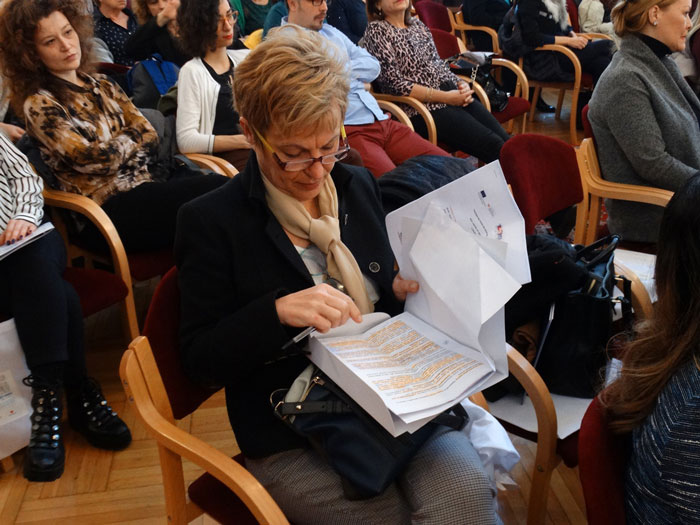
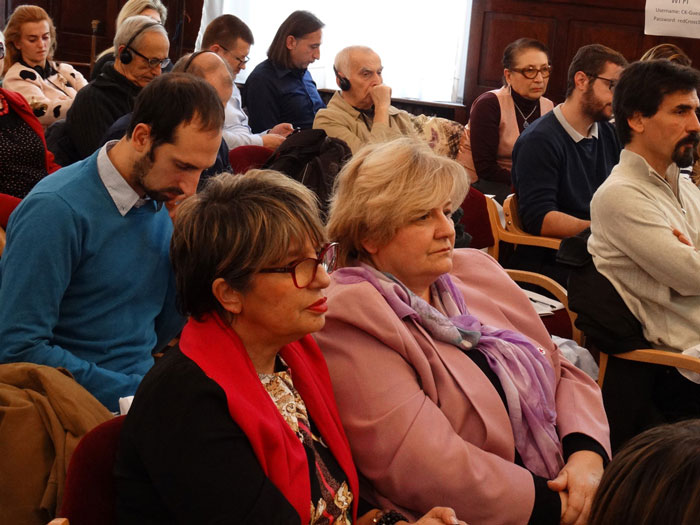
The conference also had international experts and their presentations. Ms. Verity McGivern of HelpAge International presented the need for all of the society to take part in advocacy for ageing to be recognised by the UN Agenda 2030 and the Sustainable Development Goals (Ms. McGivern's presentation can be downloaded here).
Ms. Bridget Sleap of HelpAge International, an expert working in advocacy for human rights of older people and the New UN Convention of Human Rights of Older People in particular, for many years, presented a part of the material that she is preparing for the next session of the Open-Ended Working Group on Ageing in April 2019 in New York. The topic of this session will be social security and lifelong learning and in the consultations with older people in preparation for the meeting, more than 100 older people from Serbia took part (Ms. Sleap's presentation can be downloaded here).
Ms. Tatjana Prijic, Deputy Commissioner for Protection of Equality talked about age-based discrimination and the necessity of all the society taking part in combating this phenomenon.
Ms. Lina Al Qurah of HelpAge International, Ms. Estelle Huchet of Age Platform Europe and dr Milutin Vracevic of the Red Cross of Serbia had a session where they discussed the importance of networks and networking and how networks amplify advocacy when there are opportunities to meet with decision makers. They presented the importance of networks at global, regional and national level (the presentation for this session can be downloaded here).
On 12 December HelpAge International globally presented Global AgeWatch Index – Trends in Health and Ageing and this was also presented at the Belgrade conference. The overview of the data was given by Ms. Lina Al Qurah of HelpAge International, who spoke about what older people’s right to health means. Considering that Serbia took part in the research for this publication, dr Milutin Vracevic of the Red Cross of Serbia presented the results and underlined the importance of being aware that as population ages, its health structure changes. Non-communicable diseases are the leading cause of death in Serbia and account for more than 90% of all deaths of women and men over the age of 50 (the presentation for this session can be downloaded here).
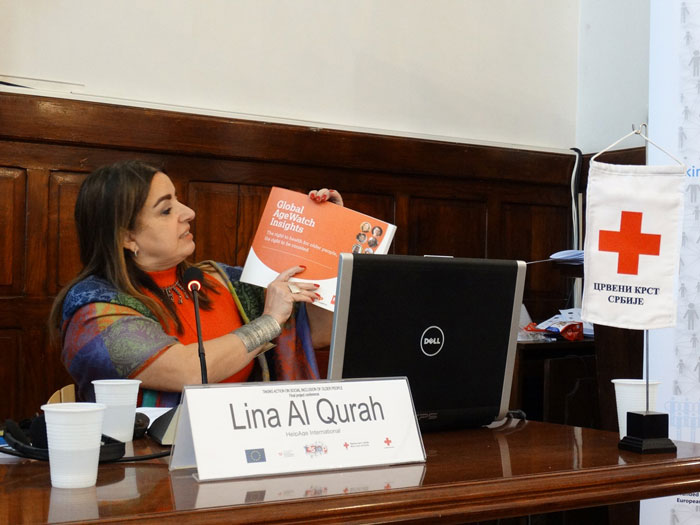

Ms. Estelle Huchet of Age Platform Europe presented the Ageing Equal Campaign – the campaign that lasted 70 days, from 1 October, the International Day of Older Persons until 10 December, the Human Rights Day and that was created to mark the 70th anniversary of adoption of the Universal Declaration of Human Rights. The campaign focused on combating ageism with every week focusing on different ageism issues. The Red Cross of Serbia was actively involved with this campaign (Ms. Huchet's presentation on Ageing Equal campaign can be downloaded here, and her presentation on Age Platform Europe can be downloaded here).
The representatives of the TASIOP project partners: Albanian Association of Geriatrics and Gerontology, Association Osmijeh – Gracanica from Bosnia and Herzegovina, Macedonian Red Cross and Association Humanity of Macedonia, the Red Cross of Montenegro and the Red Cross of Serbia presented the project achievements in their countries and had a separate session on 12 December to present the micro-projects. Ms. Angelika Scherzer, representing Austrian Red Cross spoke about positive experiences they had in the partnership on the project and the plans for future joint work on a similar topic.
The conference showed the importance of initiatives for social inclusion of older people as well as the awareness that inclusion of older people in public life and dialogue on all the topics relevant to them is a necessary response to demographic trends.
The project Taking Action on Social Inclusion of Older People is supported by European Union, Austrian Development Agency and Austrian Red Cross.

